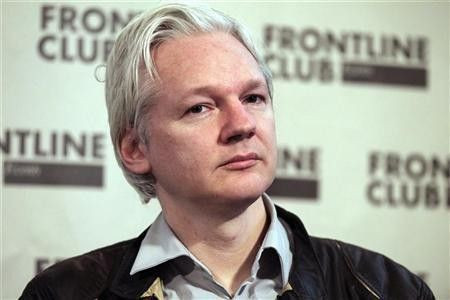Is WikiLeaks Going Soft With Its 'Kissinger Cables' Release?

On Monday, international whistleblowing organization Wikileaks released its much-publicized “Kissinger Cables,” a collection of 1.7 million U.S. diplomatic messages from 1973 to 1976. It’s an impressive number, but the Kissinger Cables had already been declassified and released by the governement. Is this a sign that WikiLeaks is going soft?
Though Wikileaks was launched in 2006, it didn’t become a household name until the April 2010 release of its “Collateral Murder” video. The video, 39 minutes of classified footage shot from an Apache helicopter, depicted the July 12, 2007, Baghdad airstrike by U.S. soldiers on a group of then-unidentified men, which was later revealed to include Reuters journalists Namir Noor-Eldeen and Saeed Chmagh.
The release of “Collateral Murder” thrust Wikileaks into the international spotlight, with various parties both praising and condemning the organization and its founder Julian Assange. For good or ill, all agreed that Asange and his crew were heavy hitters in the intelligence world. No one doubted that WikiLeaks could pull off several more releases of this status.
Now, almost exactly three years later, WikiLeaks has yet to pull off such a spectacular release. Since "Collateral Murder" was leaked, WikiLeaks has released a database of files related to Guantanamo Bay, as well as diplomatic cables from the United States known as "Cablegate." They were certainly interesting releases, but smaller in impact, if not scope, than the organization’s past successes.
With WikiLeaks’ Kissinger Cables, the stakes almost seem lower than ever. The communiques have been combined with the organization’s earlier Cablegate files to create what Wikileaks calls “PlusD,” the Public Library of U.S. Diplomacy. It’s all interesting, but ultimately underwhelming.
One of the biggest problems with WikiLeaks’ Kissinger Cables is that they aren’t exclusive to WikiLeaks at all. Even the group's Kissinger Cables press release admits that the vast majority of the files were already declassified.
“Most of the records were reviewed by the United States Department of State's systematic 25-year declassification process,” WikiLeaks says in its Kissinger Cables press release. “Records were then subject to an additional review by the National Archives and Records Administration (NARA). Once believed to be releasable, they were placed as individual PDFs at the National Archives as part of their Central Foreign Policy Files collection.”
Simply put, WikiLeaks doesn’t appear to be leaking much of anything at all with its Kissinger Cables. In fact, the organization makes a point of admitting that the Kissinger Cables have no files created after 1976 because the federal government stopped declassifying diplomatic communiques after that point.
All of this points to one thing: WikiLeaks is sorely lacking in insider informants at this stage.
It’s possible that WikiLeaks is simply a victim of its own success. Assange and WikiLeaks are monitored heavily by several governments and press agencies. This could make it much harder for potential inside sources to feel safe discussing potential leaks with the organization.
At the same time, the man believed to be WikiLeaks’ most notable informant, Army Pvt. Bradley Manning, has been detained by the United States government for years without trial.
Manning, who is alleged to have leaked the “Collateral Murder” video to WikiLeaks sometime in 2009, has become a poster boy for WikiLeaks supporters willing to take on perceived government injustices. Yet for all the WikiLeaks supporters who clamor for Manning’s release, it seems that none of them are willing to become another Manning themselves.
At the end of the day, WikiLeaks’ PlusD and Kissinger Cables can be valuable resources. And the mere fact that WikiLeaks has created such an expansive databse for PlusD and the Kissinger Cables is impressive. But as Gawker writer Adam Weinstein points out, organizations like George Washington University have long built similar records of United States diplomatic messages with the National Security Archive.
If WikiLeaks wants to maintain its subversive, mysterious image as an outsider supplying information to the world, it needs to do something established organizations cannot. The Kissinger Cables, however, may prove that WikiLeaks has lost that power entirely.
© Copyright IBTimes 2024. All rights reserved.






















